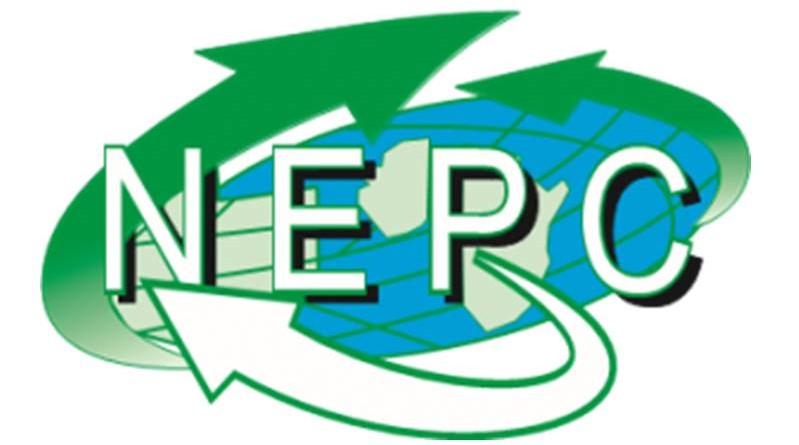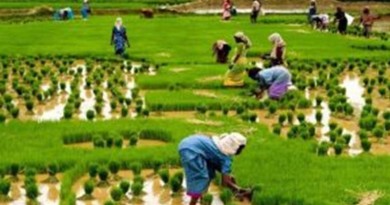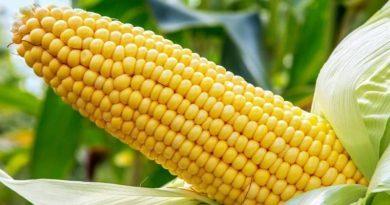Nigeria currently exporting vegetable, hibiscus, to introduce 5 more commodities —Isigbe, NAQS Director
The Coordinating Director of the National Agricultural Quarantine Service (NAQS), Dr Vincent Isigbe, speaks on the potential available in exportation of agricultural commodities, and how it can revamp the economy. He also speaks on the challenges facing the NAQS in discharging its duties, among others. COLLINS NNABUIFE of TRIBUNE NEWSPAPERS brings the excerpt.
WHAT is happening to agricultural products, is Nigeria still exporting?
The Nigerian Agricultural Quarantine Service (NAQS) is still involved in the export of Agricultural products, and specifically, our duty is to ensure that quality products leave this country for its destination, we ensure by doing our inspection and certification based on the commodity and the requirements of the country of import or export as the case may be.
So, we are still very much on it, the NAQS too has gone ahead to continue with our export certification value chain, we have now listed 10 commodities for which we have done the preliminaries, thereafter we do what we call export improvement initiative, that one focuses particularly on a commodity from the point of production up to the point the product is available for export inspection and certification.
You may wonder why we are doing that, we have realized that there is a gap between the farmers or the exporters and then what they are supposed to do and what they are not supposed to do, the sensitization which we are on to, we have challenges because of financial constraints, so we are not able to reach as many farmers as we have loved to do, so we sent our field officers to those people, we encourage farmers to form cooperatives, it is easier to deal with one cooperative than dealing with individual farmers, and these cooperatives are registered as a value chain, we have the producers, we have the processors, we have the marketers, we have the suppliers, we have the exporters. So we have each of those people registered as they are for each of the commodities, we encourage them to do so, so when there are issues involved in any of the value chains it can be addressed properly because we know who we can address to sole the problem.
So, that is one step we have taken to ensure that people know what they are supposed to do, and by the time an exporter brings his commodity for certification, you don’t ask him to go back because it has not met the quality, everybody along the value chain from the farmer who planted the seeds, up to eventually the exporter knows exactly what he or she is supposed to do, that we are doing in earnest.
We have the report for sesame, vegetable, and for hibiscus, for these three commodities, we have done the export improvement initiative, by next year, we will take another five agricultural commodities and we do our in depth analysis to ensure that we are able to be in charge of those commodities that we intend to export.
After certification of products here, are there still challenges with the importing countries?
NAQS don’t have challenges with any export, we don’t have challenges with our vegetables, with our yam or any other commodity, what we have probably I will say is that some people bypass the process, and those individuals are picked out, but we are trying to ensure that there is more collaboration with the Nigerian Customs to ensure that they inform us before the clear, that we are doing, we don’t have any issue.
The issue of hibiscus with the Mexicans, we are working on it, we have been exporting to Mexico of these years, so it is not insurmountable, NAQS will get over it.
Are you satisfied with the result of the nationwide sensitisation of farmers and exporters?
We are surprised that many farmers are saying they wish they had these information earlier than now, that means there is a gap, so they don’t know where to get what, most of the people parading agricultural pesticides, you realize they are not genuine ones, which means there are issues, and probably that’s why this issue of adulteration and contamination of products is on the increase. But we have what is called the National Pesticides Policy in place as a committee, because we realized that gap is there since last year we set up, and they are working hard to come up with a guideline across board, so this Pesticide Policy will cut across every segment of the economic sector, it is not going to be limited to animals alone, to crops alone or food alone or environment, because we need a sectoral regulation based on this, you know NESREA has for environment, NABADA has the one for food, Veterinary service has the one for animals, we want a harmonized National Pesticide Policy that could be able to take of any issue that has to do with pesticides, the international community is in need of that because some countries will not trade with you if you don’t have the pesticide policy because of the environmental issues, the ozone layer is there, environmental hazards are there seepage into the water is there, the water will get into the ocean and it will eventually get to where you don’t expect.
So it is world wide concern that these things are in place, so we are working on that to ensure that it is taken care of.
The other challenge which we have is issue of storage, we have already started the registration of warehouses to ensure that each commodity has a specific warehouse because of cross contamination of pests, and we are doing National crops pest surveys for various crops to ensure they are safe, even when we finish doing the National pest survey, you need to go back every two years to validate, because between then and in the next two years, there will be a lot of changes, new influxes of pesticides, it could be that those ones are becoming resistant to the control factors that they put in place, so what is the situation at the end of two years, so it is a continuous process and our intention is to continue to work as much as possible within our budgetary limit for use to attain that target, it is not easy, but we are working hard.
How is the partnership of NAQS with sister agencies in manning Nigerian borders?
For what comes in, NAQS is there at the land borders, seaports and airports, but we are having challenges because of the government circular said so,e agencies of government should be there and some agencies should not be there, for quarantine, they said we should be there in call, we are still working on that because we don’t believe that being on call is sufficient, because that was what caused the three year’s ban on Nigeria for beans, Quarantine was not there when those things were certified and passed, so the EU was like if you say you have done your certification and inspection, how come this one passed, it was a bitter experience that they had to place us on banned for the next three years, ending June 2019, we have drawn the government attention to this and for the agricultural products, more so that there is dwindling oil revenue, agriculture can generate much money in terms of export, generate so much money in terms of engagement in employment and you will find out that there will be stability even in security because people who hitherto have no jobs to do will have something to do, it is a spiral effect,the transporters will be engaged because there will be more produce available to transport, the certifying agency will have a lot of work to do, there be more revenue coming in to government, the Seed companies will produce more seeds because more people will go into farming, the other agro input suppliers will have more business to do because there will be improvement or there is more demand for their services.
So, you now find out that by increasing the export of maybe ginger or Maize or yam by just 50 per cent, you can imagine the spiral effect on the economy, that is what as Quarantine we are looking at, that if we are able to do that, it will so much generate money,so much stabilize the economy, everybody will go home happy, so we are believing Government to look seriously into that and see the enormous revenue that government can make and the socioeconomic impact that we can create by being at the right place to do our job.
Which crops is Nigeria exporting now?
Every commodity from Nigeria is now exportable, the only challenge we have is the commodity of standard and is the other country willing to accept it? take the case of snail, some will not take life snail, the US will not take life snail, in UK, if the snail is processed and frozen, they will take it, so exporters need to know the requirements of the importing country.
, Tribuneonline




